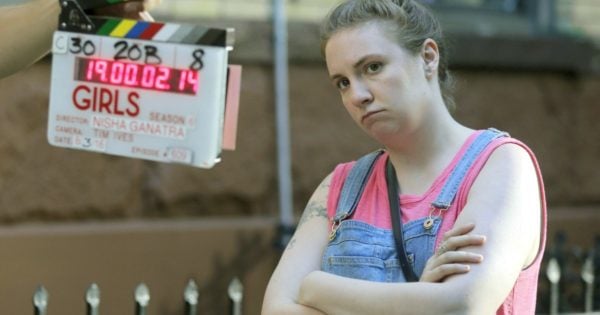I’m going to come out and say it: for the first 27 years of my life I wasn’t a feminist.
At least, I didn’t know I was one. I also didn’t know that most people around me were feminists – because they didn’t know either, and I’m sure many still don’t.
It was something Caitlin Moran said in her brilliant book How to Be A Woman that changed my mind:
“When statistics come in saying that only 29 per cent of American women would describe themselves as feminist – and only 42 per cent of British women – I used to think, ‘what do you think feminism IS, ladies?’ What part of ‘liberation for women’ is not for you? Is it freedom to vote? The right not to be owned by the man you marry? The campaign for equal pay? ‘Vogue’, by Madonna? Jeans? Did all that good shit GET ON YOUR NERVES?”
It was ‘jeans’ that woke me from my life-long reverie at the age of 27.
Listen: Mamamia Out Loud discusses famous women who refuse to call themselves feminists. (Post continues after audio.)
Don’t get me wrong, I’ve never rejected feminism.
I grew up in the ’80s and ’90s, in the home of two liberal-minded artists where equality wasn’t a theoretical dinner-table debate – it was life. Feminism, though, felt like something in my mother’s distant past – something to do with her hairy armpits and dislike for laundry – and it felt tainted by an inexplicable negativity that the pages of Dolly never addressed. Women’s studies were never offered at my high school nor during my design degree, so I’d never thought too deeply about what a feminist really was, nor if I cared to call myself one.



Top Comments
I'm a feminist and will always be one. Ive lived and travelled through enough developing countries to see that on a global scale, women are still treated like crap. I've seen women being blamed for rape (I met a young girl who fell asleep on a school bus and was raped by the bus driver and she was criticised by her community for falling asleep). Modern feminism spills over into the developing world and we need champions here to continue the work to give all women a voice.
Modern feminism seems to be about freeing the nipple, Beyonce, mans-spreading, {insert} shaming and empowering reindeer breasts for Christmas which is all you seem to talk about.
The original Feminists are probably crying over this travesty of their hard fought legacy.